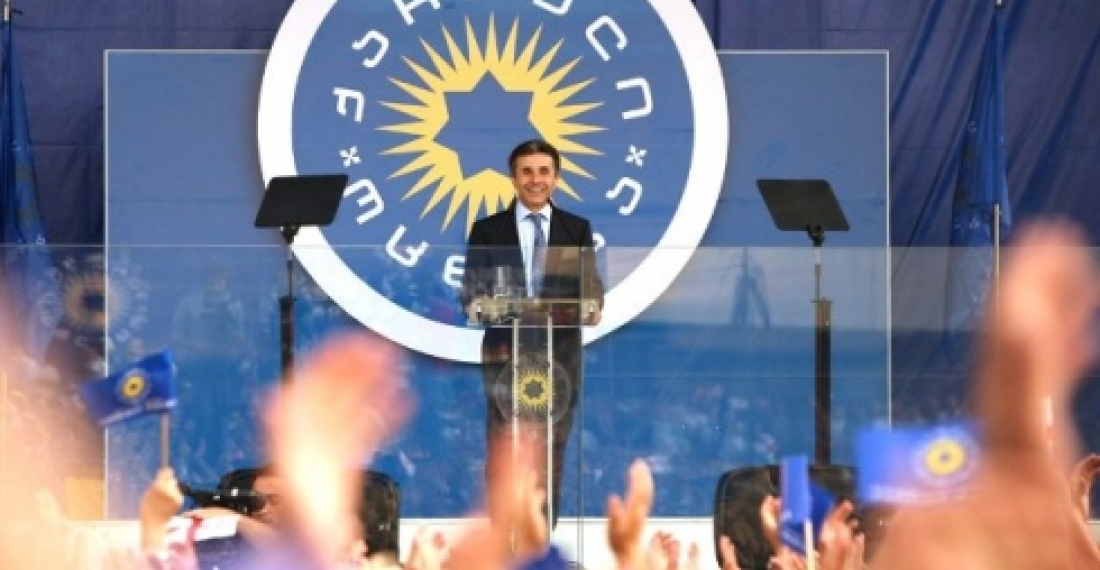The leader of the opposition "Georgian Dream" coalition, Bidhzina Ivanishvili has spoken in detail for the first time about his views on Georgia's unresolved conflicts. Addressing thousands of supporters in the town of Gori, which is in close proximity to the South Ossetian conflict zone, Ivanishvili spoke about the August 2008 war, and of the need of reconciliation with the Ossetian people.
"I do not think that Georgia started the war. We have not crossed into the Russian territory, but we cannot shun away from the fact that in response to shelling of the Georgian villages the Georgian authorities launched military actions without calculating possible consequences. No one can be happy about it," Ivanishvili said, adding that authorities acted "shamefully" during the war.
"It is immoral to claim almost a victory in the war, which resulted into occupation of over hundred villages. We should say the truth no matter how bitter it might be," he said.
He also spoke about the need for reconciliation and also about the need to find strength "to admit our own guilt".
"Together we will find strength and we will be able to forgive. We will be able not only to forgive, but also to admit our own guilt and to repent," Ivanishvili said. "We will extend our condolences to Ossetian mothers, we will help them to find their missing children, we will carry out fair investigation, we will correct what is still possible to rectify."
"We will find ways to reach out to our Ossetian brothers and sisters and we will definitely restore relations with them," Ivanishvili said. "We will launch direct dialogue with our Ossetian brothers, we will use public diplomacy, we will find shared interests on which our future relations will be based."
Ivanishvili also criticised the decision of the Georgian government in 2004 to close the Ergneti Market, which had developed as a trading area for Georgians and Ossetians, and promised to restore it on coming to power. He stated:
“That was the place not only where they [Georgians and Ossetians] were meeting each other, but also a venue for being engaged in joint businesses… At that time Georgians and Ossetians rediscovered that they needed each other,” Ivanishvili said.
“If the authorities cared about the peaceful resolution of the conflict, they would not have closed down Ergneti market so thoughtlessly. Closure of that market was a result of our government’s reckless policy,” he said.
“Only we can rectify that mistake,” he continued. “After coming into power, we will restore Ergneti market legally in frames of the law. We will calculate everything thoroughly and take into consideration all the risks.”
In his speech Ivanishvili also spoke about his foreign policy, and reiterated that Georgia’s pro-Western orientation, EU and NATO integration “is our strategic choice, which has no alternative.”
“But we cannot choose neighbors. Regardless of everything, we will have to normalize relations with Russia. I think that after coming into power we will be able to return Georgian products back to the Russian market. Unlike authorities, which have incorrect and unprincipled policy, our policy towards Russia will be correct, but principled,” he said.
source: commonspace.eu with agencies
photo: Leader of the Opposition Georgian Dream Coalition addressing supporters in the town of Gori, close to the Ossetian conflict zone.







